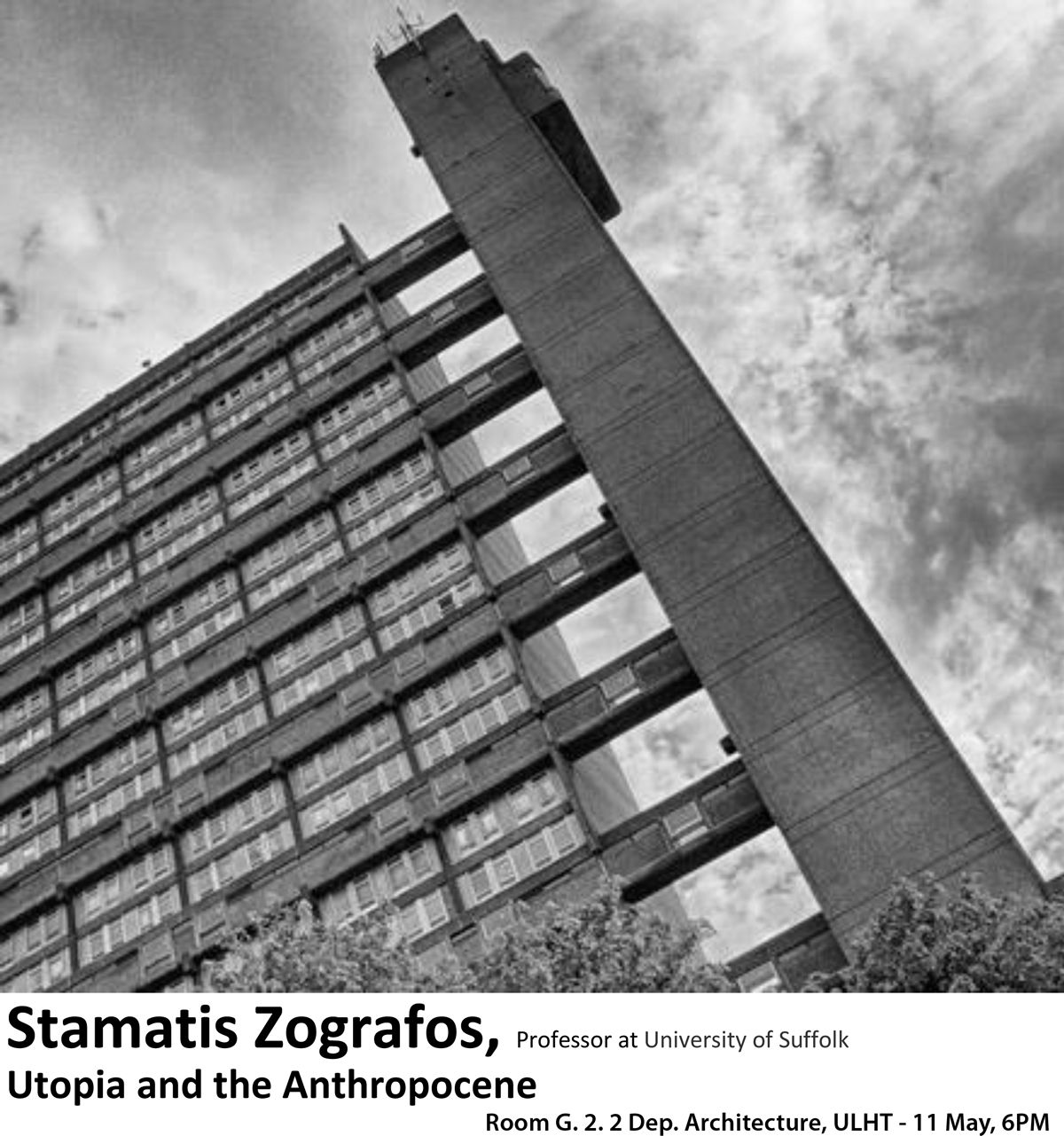News
Lecture Utopia and the Anthropocene by Stamatis Zografos @ Room G.2.2, 11 May, 6PM

Utopias are often set outside scientific time. They can be set in the past or future, or even in mythical time. They comprise constructs of our imagination that can provide escape from everyday life. Yet by doing so they also highlight issues that render our world and our everyday life rather problematic. Can utopias therefore be considered as tools to improve this world? Or are they merely reactions against it?
Utopia and the Anthropocene
From Sir Thomas More’s Utopia (1516) to the global uncertainty of the Anthropocene today, the concept of utopia has been used widely and in various contexts.
Utopias are often set outside scientific time. They can be set in the past or future, or even in mythical time. They comprise constructs of our imagination that can provide escape from everyday life. Yet by doing so they also highlight issues that render our world and our everyday life rather problematic. Can utopias therefore be considered as tools to improve this world? Or are they merely reactions against it? Some utopias are imagined as societies in which an ideal system of order, control, justice and economy is put in place. Does this mean that utopias cannot operate without rules it or is it our imagination that cannot think unless rules are implemented?
Through a diverse range of case studies, this seminar will question notions of space and time in order to explore and understand what utopia might mean and entail. It will also approach the concept of utopia in relation to imagination and memory. Ultimately it will question how utopia can be imagined in the period of the Anthropocene during which the human activity on Earth has been so global and lasting that we have created an identifiable impact on the Earth’s geological landscape and broader natural systems.
Stamatis Zografos is a professor at University of Suffolk, UK.


